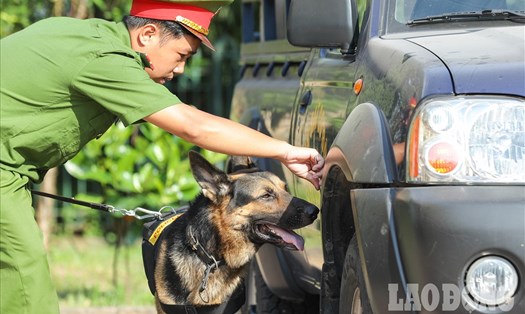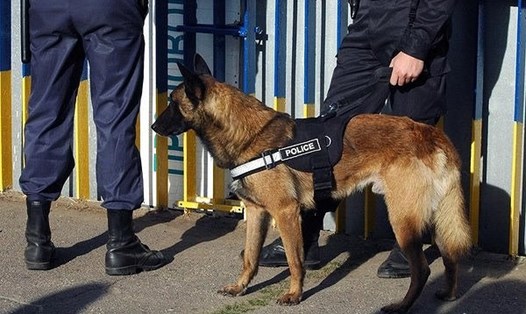A year-long review by US State Department inspectors recently found that at least 10 bomb-hunting dogs in Jordan had died in 2008-2016 due to health problems. The surviving children also have to suffer from unhealthy conditions such as unsuitable cages, poor hygiene and overwork.
The photos in the report were published last week showing stray dogs with loose bones and loose bones. The snails of these dogs are also growing too long, and their ears also have too many insects. In some establishments, there are even no bowls for dogs to feed but instead they directly pour food onto the floor.
According to the report, the first dog to die in Jordan was Zoe - a 2-year-old Belgian Malinois dog. Zoe died from heatstroke in 2017 - a terrible death due to poor care, not an accident.
The other dog, the 2-year-old Athena, was thinner before being brought to the US for recovery in 2018. Before that, Athena had experienced very poor living conditions.
For more than 20 years, the US has sent bomb-hunting dogs and specially trained domestic dogs to partner countries under the anti-terrorism support program. The report said that despite spending "millions of dollars" on training and sending these breeding dogs, the Ministry of Foreign Affairs' officials have failed to ensure their health and well-being.
According to the report, lax regulations and lack of specific policies of the Ministry of Foreign Affairs are a major factor in the treatment of dogs. The Foreign Ministry cannot provide investigators with detailed information about dogs in partner countries other than Jordan and often does not have any written agreements with countries on how to care for them. This has led to persistent health problems for 61 bomb-hunting dogs in Jordan.
Other countries that also have US official dogs sent are: Thailand, Morocco, Indonesia and Bahrain.











